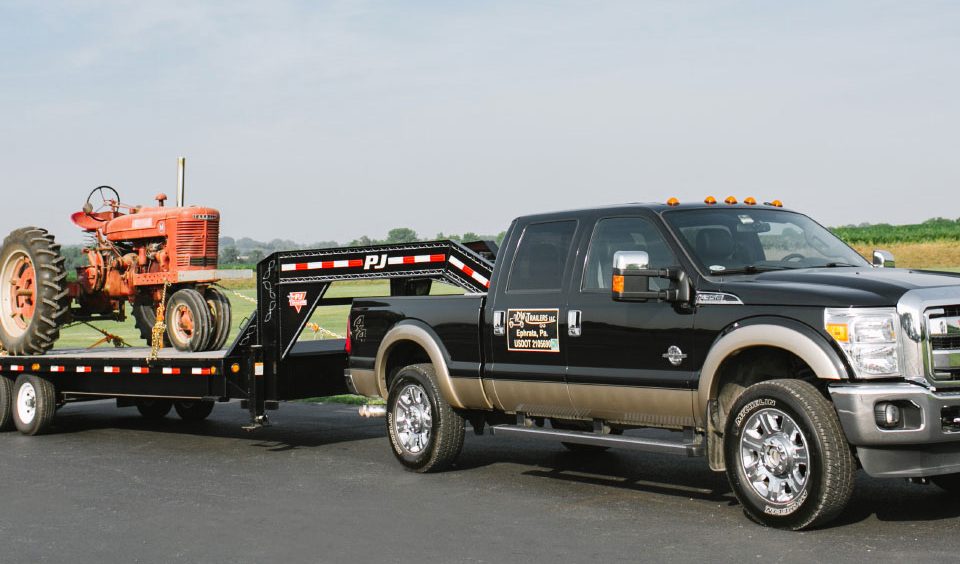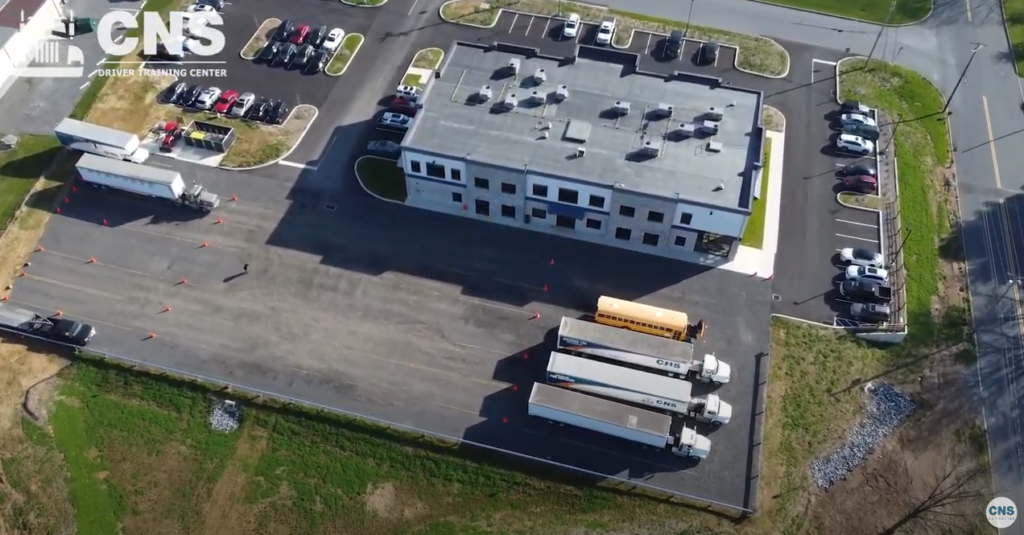At times it can be difficult to determine the gross combination weight rating (GCWR) and, as a commercial driver, you may need to consider the gross vehicle weight rating (GVWR) as well.
To understand why they are important, let us first discuss the differences between GVWR and GCWR, as well as how to calculate the ratings.
What is the Gross Vehicle Weight Rating (GVWR)?
The Gross Vehicle Weight Rating (GVWR) is determined by the manufacturer and considers the base curb weight of the vehicle plus the weight of any optional accessories, cargo, and passengers.
You should never load a vehicle beyond the listed gross vehicle weight rating.
This is what determines the Class of CDL required for hauling freight.
What is the Gross Combination Weight Rating (GCWR)?
The Gross Combination Weight Rating (GCWR) is the maximum safe weight of both:
- the loaded tow vehicle, and
- the loaded trailer
But what is so important about the GCWR?
Where can I find the maximum GCWR for my vehicle?
Manufacturers determine the maximum weight rating for each vehicle, and it can be found on your vehicle placard. However, if this information is not available, it is possible to calculate your own.
How can I calculate my vehicle’s Gross Combination Weight?
You can use the use the following formulas to calculate your vehicle’s GCWR:
GROSS VEHICLE WEIGHT (GVW):
Vehicle Base Curb Weight
(vehicle + full fuel tank + standard equipment, but NOT passengers)
+
Cargo Weight
(cargo + extra equipment + trailer tongue)
+
Passenger Weight
= GVW
LOADED TRAILER WEIGHT (LTW):
Weight of empty trailer
+
Weight of anything on or inside trailer
= LTW
GROSS COMBINATION WEIGHT (GCW)
GVW + LTW (above numbers) = GCW
How do I find the actual weights of these separate items?
A local public scale is needed to weigh either the separate items or weigh a fully loaded vehicle and trailer.
What are the problems with exceeding the GCWR?
- You may damage your vehicle or your trailer by exceeding the weight limits.
- You put your safety and the safety of others at risk.
- You risk being unable to control your loaded vehicle. Slowing and stopping becomes difficult or impossible.
What kind of brakes do I need to manage my vehicle and trailer load?
It is important to note that vehicle brakes are only rated for the Gross Vehicle Weight, NOT the combined weight.
If the Gross Combined Weight surpasses the Gross Vehicle Weight, you should use separate trailer brakes.
Why is it important to know the GCW?
Single-unit vehicles, by themselves, may not qualify as a Commercial Motor Vehicle (CMV). However, the addition of a trailer—or any weight—may put the vehicle over the threshold, causing it to be considered a CMV.
With the additional weight, this vehicle combination may now require the driver to have a Commercial Driver’s License (CDL), therefore, it is important to know the Gross Combined Weight to ensure that the driver has the proper license.
Knowing your vehicle’s Gross Combined Weight Rating is more than just a policy, it’s also a way to ensure safety is upheld for all drivers on the road.
CDL Training + CDL Test Packages
If you are not quite ready for your test and need to start or get extra CDL training, we offer several different forms of training, including CDL Training and training for Hot Shot Trucking.
- Class A (25hrs) = $3,400
- Class B (20hrs) = $3,000
- Hot Shot (20hrs) = $2,900
- Manual restriction
- 5th wheel restriction
- Air Brakes restriction
CNS Driver Training Center is located at our Commercial Navigation Specialist headquarters in Lititz, PA, which is available by appointment Monday through Friday, 8:00am – 5:00pm. Any driver testing for their CDL license will need to have their CDL learner’s permit before starting any CDL training.
For more information, contact us at 717.496.9145 or support@cnstrains.com.








